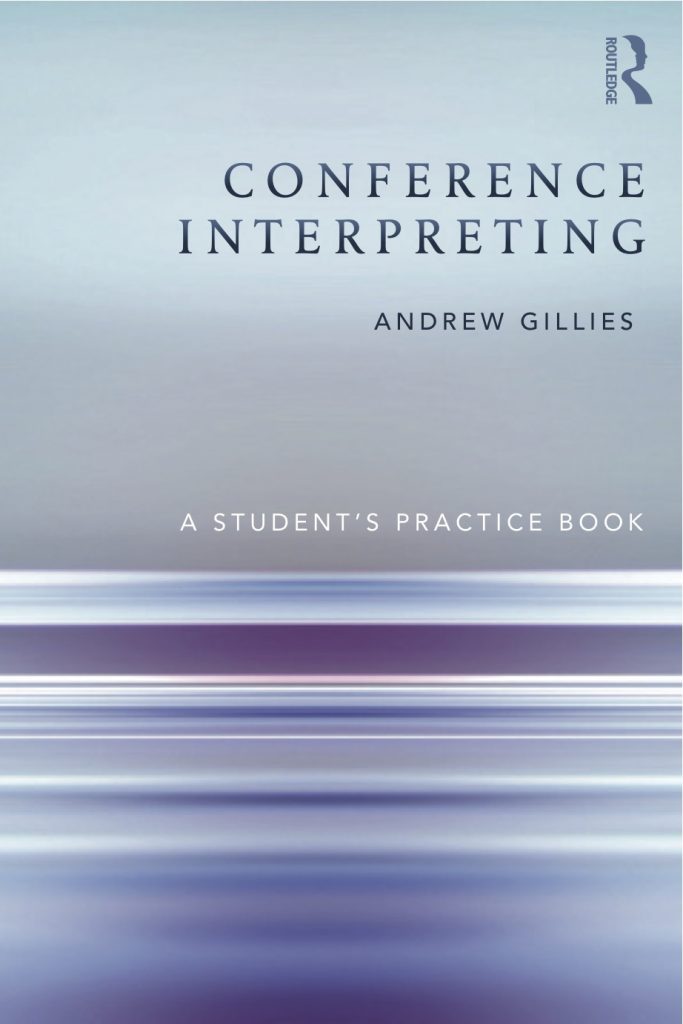The following text is taken from Conference Interpreting – A Student’s Practice Book by Andrew Gillies Routledge, 2013.
Most of your interpreting practice will be in practice groups with other students, not in a classroom with an interpreter/teacher. It’s worth then taking a moment to think about the way in which you comment on each others’ interpreting performances.
A.38 Focus on technique issues
Feedback has at least two distinct functions. To assess the performance and to help the interpreter improve that performance for next time. The latter is far more useful. And as students, who are not yet qualified and experienced interpreters, the former is almost impossible. If you want to improve for next time you’ll need, together with your teachers and training partners, to identify why you are having problems – that is to say address technique issues.
In practice this means that you shouldn’t simply list lots of minor errors. Try instead to prioritize and comment on areas of the interpreted speech where there were more serious communication problems. This is particularly important in the early part of the course. Try to identify not only that there were problems with the interpreting, but why there were problems. Knowing what the mechanisms causing errors are is far more useful than knowing what the errors themselves were. In other words, being told by a that you have made a mistake will not per se, make you do it better next time. Being told why you made a mistake might.
When you know why you’ve made a mistake interpret the relevant sections of the speech again and try to correct the problem. If you can’t work it out why you’re having problems yourself, or with other students, ask your teachers. When you’ve identified the problem area find an exercise in the index to this book that will help you practise the skill you’re having trouble with.
A.39 Structure your feedback
Going through a list of points in chronological order may be the most obvious way to conduct feedback, but it’s not necessarily the most useful. Before you start giving feedback to another student spend a few moments looking at your notes and ranking the points in order of importance. When you give feedback address the most important points first.
That might be: 3 main points first, hopefully related to technique. Then some minor points. At the end, return to the main points and repeat them. Make sure that the interpreter tries to improve on them in the next interpret.
When you make that last set of comments at the end of practice sessions don’t introduce new comments which between now and the next practice session will be forgotten, recap on the most common or important problems.
A.40 Be positive
Don’t only comment on or correct mistakes when giving feedback. Make a point of highlighting things that went right as well!
Source: Harmer 1990: 239
A.41 Be disciplined about time-management
Don’t get into never-ending discussions about an interpreting performance or the meaning of a given phrase. Time is of the essence. If you’re working in groups set yourselves a time limit. For example, for a 10 minute interpreting performance the feedback will last no longer than10 minutes. This will mean you waste less time and do more practise. It also has the beneficial side-effect of focussing the assessors mind to the main points they want to make.
A.43 Write feedback down
If you’re the interpreter, write down what is said to you about your interpreting performance. Memory is a fickle friend and we tend to remember what we want to remember. And that may not be the same as what we need to remember!
